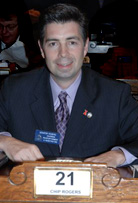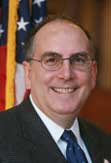Sierra Club has dug up the money trail connecting fossil fuel companies funding with current legislative attempts to block renewable energy such as solar and wind. And there’s our old friend ALEC!
Sierra Club PR today,  “Clean Energy Under Siege” Study Follows Money Trail Behind Campaign Against Renewable Energy
“Clean Energy Under Siege” Study Follows Money Trail Behind Campaign Against Renewable Energy
If well-funded opponents of clean energy are willing to commit resources to hurting their enemies at the federal level, it only follows that they would pursue their goals in state and local venues as well.
FIGURE 1 — TOP 10 OIL & GAS LOBBYING COMPANIES, 2011
| Client/Parent |
Total |
| ConocoPhillips |
$20,557,043 |
| Royal Dutch Shell |
$14,790,000 |
| Exxon Mobil |
$12,730,000 |
| Chevron Corp. |
$9,510,000 |
State Renewable Portfolio Standards have long been regarded as a major driver for the addition of renewable energy generation. RPS’s have been established in some form in 30 states and generally require a utility to produce an increasing percentage of the electricity they sell from renewable sources. Wind energy has been a particular beneficiary of state RPS laws and has also helped lower the overall cost of electricity in many of those states.
Groups like the American Legislative Exchange Council (ALEC) are a clear and present threat to state RPS laws. ALEC describes itself as a nonprofit group that “works to advance the fundamental principles of free-market enterprise, limited government, and federalism at the state level….”23 ALEC’s modus operandi is to provide state lawmakers with “model legislation” that will carry out the goals of its corporate members.
They have had significant success with several initiatives. One high-profile example is the “stand your ground” law — ALEC-authored legislation that was implemented nearly word-for-word across several states.
Let’s not forget Georgia’s HB 87 “anti-immigration” law, based on a model bill that ALEC-affiliated legislators proposed in at least 24 states.  A law that actually creates new misdemeanors and felonies that feed the private prison industry, such as Corrections Corporation of America (CCA), which tried to build a private prison in Lowndes County, Georgia.
A law that actually creates new misdemeanors and felonies that feed the private prison industry, such as Corrections Corporation of America (CCA), which tried to build a private prison in Lowndes County, Georgia.
ALEC is also pushing a  charter school law that the Georgia legislature passed that put a referendum on November’s ballot to authorize Atlanta overriding local school boards. Privatizing schools would do no more to improve education than privatizing prisons has done to improve incarceration. It’s all about fiddling laws for the profit of ALEC’s cronies.
charter school law that the Georgia legislature passed that put a referendum on November’s ballot to authorize Atlanta overriding local school boards. Privatizing schools would do no more to improve education than privatizing prisons has done to improve incarceration. It’s all about fiddling laws for the profit of ALEC’s cronies.
Today, ALEC is in the  process of approving anti-RPS language to send to willing sponsors in state Houses across the nation.
process of approving anti-RPS language to send to willing sponsors in state Houses across the nation.
Here’s the gist of the whole thing:
It is a testament to the success and rapid growth of clean-energy resources that they are now regarded as enough of a threat to draw fire from some of the largest, most powerful corporations on the planet.
Those would be the corporations that are making historic record profits by
Continue reading →
Georgia. Working with Dr. Marty Williams and Charlie Oliver, we hope to raise $6,000 for the Literacy Volunteer Program (LVP) of South Georgia. The LVP provides one-to-one tutoring to improve the reading, writing, and arithmetic skills of functionally illiterate individuals 16 years of age and older in South Central Georgia.




 for
for 














